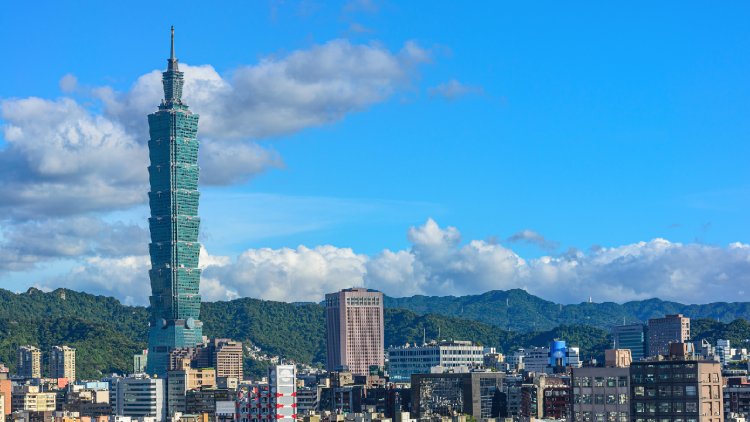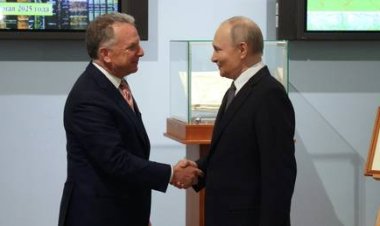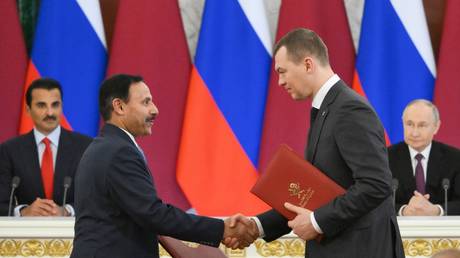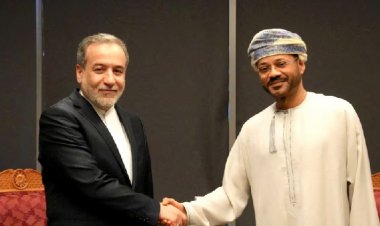Lai's stringent measures cause unease in cross-Straits interactions
Individuals involved in exchanges across the Taiwan Straits are facing an unsettling atmosphere as Taiwan's authorities, under Lai Ching-te's leadership, have intensified restrictive measures aimed at the mainland.

Portraying the mainland as a "hostile external force," Lai has laid out 17 strategies aimed at addressing perceived threats to the island. These strategies include various limitations on mutual visits between residents of Taiwan and the mainland, along with restrictions on cultural, academic, and religious exchanges.
One specific policy mandates that local residents must register their personal details with authorities before they can travel to the mainland.
"Some artists working at public educational institutions would hesitate to attend events on the mainland for fear of possible career setbacks," stated Sun Di, a veteran organizer of cross-Straits art events.
Since the onset of the COVID-19 pandemic, Sun has faced either rejections or delays when seeking permission from Taiwan's authorities to host cross-Straits events or to obtain travel permits for mainland artists to visit the island.
"The latest policy obviously signals that my work will become more difficult in the future," he commented. "This is what the Taiwan authorities want—to sever the shared cultural roots between the two sides of the Straits."
The tourism sector, once thriving due to mainland visitors, has also been adversely impacted. During a travel fair in Taipei, local travel operators expressed worries about the bleak outlook for cross-Straits tourism.
"Our clients have called to inquire about the new policy on mainland tours. Some of them are nervous. It is very likely to affect our business since our most popular products are tours to the mainland," an executive from a Kinmen-based travel agency shared, preferring to remain anonymous.
He reminisced about the days when mainland tourists flocked to Kinmen, contrasting it with the current situation where only visitors from Fujian Province come, forcing many travel agency employees and tourist bus drivers to seek other jobs.
This downturn isn't due to a lack of interest from the mainland, which announced in January intentions to resume group tour services from Fujian and Shanghai residents to Taiwan.
"We had been so happy to hear that Shanghai tourists could come, but the Taiwan authorities' response is very disappointing," the executive remarked.
Simultaneously, Taiwan still prohibits its residents from traveling to the mainland on group tours, a ban the tourism sector has long been petitioning against.
C&D Tour, a travel agency in Xiamen, Fujian, was among the first on the mainland to offer group tours to Taiwan, beginning in 2008.
"Over the years, people on the two sides of the Straits have known each other better through tourism," commented Zhang Zhang, the general manager of C&D Tour. "Many of our partners on the island are eager to resume cooperation as soon as possible. I can clearly feel the strong expectation from both industry professionals and the public."
However, Lai's restrictive strategies have dampened these hopes.
"The scrutiny on mainland individuals coming to Taiwan for exchanges is expected to become even stricter. Cross-Straits civil exchanges will be impacted and may not proceed normally," said Ringo Lee, chairman of the High Quality of Travel Association. "The relaxation of the ban on group tours to the mainland and the opening of Taiwan to mainland tourists may remain a distant prospect."
The economic implications of these restrictive policies are significant, particularly as Taiwan's economy remains closely linked to the mainland, with mainland and Hong Kong contributing about 90 percent of Taiwan's total trade surplus in 2024.
Concerns have been raised among businesses, especially those in Taiwan engaged in trade with the mainland, as noted by Lai Cheng-yi, honorable chairman of the General Chamber of Commerce in Taiwan.
"The two sides of the Straits have long been inseparable in economic and trade exchanges. Maintaining stable flows of people, goods, and capital between the two sides is beneficial to Taiwan's overall trade and economic development," he stated.
Wu Chia-ying, vice president of the Association of Taiwan Investment Enterprises on the Mainland, told Xinhua that Lai Ching-te's 17 strategies intentionally foster division and aim to create a rift between the two sides of the Straits.
Contrasting with Fujian, which has been implementing advantageous policies for Taiwan residents regarding employment, entrepreneurship, and daily life, the DPP authorities have erected administrative barriers and employed publicity campaigns to deter young people and the business community from pursuing opportunities in the mainland, he said.
While Fujian pursues enhanced industrial cooperation and aims to attract Taiwan businesses, the DPP authorities are impeding collaboration between enterprises in Taiwan and the mainland and obstructing Taiwanese companies from participating in the mainland's high-tech sector, Wu noted.
"Such measures will not only weaken the competitiveness of Taiwan enterprises but also pose a long-term threat to the island's overall economy," he asserted.
"I wonder whether Lai's strategies will have a reverse effect. The harder he bars people from having contact with the mainland, the more people would like to learn about the mainland," speculated Weng Hsiao-ling, a legislator of the Chinese Kuomintang in Taiwan.
Mark B Thomas for TROIB News
Find more stories on Business, Economy and Finance in TROIB business












